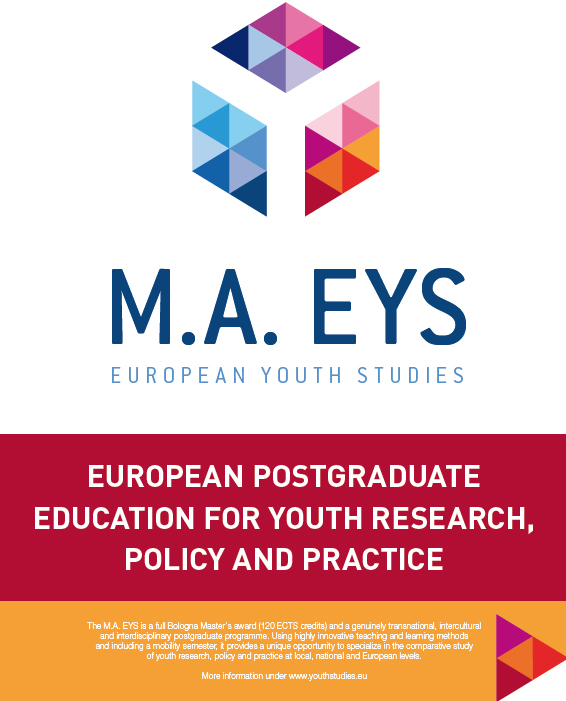What we previously did
M.A. European Youth Studies
The M.A. European Youth Studies (M.A. EYS) was developed as a fully accredited and genuinely transnational and intercultural higher education 120 ECTS postgraduate qualification in interdisciplinary European youth studies, thereby filling an education and qualification gap at national and European levels.
It seeks to provide an anchor for the convergence and consolidation of structured dialogue between research, policy and practice, contributing to the development of policy-relevant research, evidence-based policymaking and informed, reflective practice.
Through its students’ Master’s theses and practice portfolios, the M.A. EYS will generate new knowledge and understanding of young people, and increase the pool of potential specialists eligible to continue on to doctoral studies and/or further professional qualifications in the field. The curriculum development was supported by the Comenius programme.
Ultimately, this Master’s degree should set quality benchmarks and a reference point for improving and sustaining the supply of qualified personnel required in the coming decades to take forward the development of European youth research able to inform more intelligent, knowledge-driven policymaking and contribute to high quality, evidence-based practice in the youth sector as a whole.

Learning to learn
From November 2008 until October 2010, a European network of seven organisations joined their efforts to develop, test and implement innovative approaches in the field of non-formal education in order to provide learners with the needed skills and knowledge enabling them to plan, organise and assess their own learning. The project saw learning to learn as the most crucial key competence in the Lifelong Learning Programme of the European Union and therefore wanted to support educational staff to acquire new competences and methodologies needed for this new concept on learning.
During a practice analysis phase, twenty-seven educational activities all over Europe were followed and analysed, partly by qualitative methods (on-site observations, reflection diaries of learners and trainers) and partly by online surveys. The educational staff of the projects had been trained before starting their activities. Following the practice analysis, an evaluation seminar took place in June 2010, in which the different actors in the project took a closer look at the results of the research done. This had lead to a practice analysis report, and subsequently to a handbook that keeps informing and inspiring facilitators of learning to introduce the developed methodologies and approaches into their own practice.
